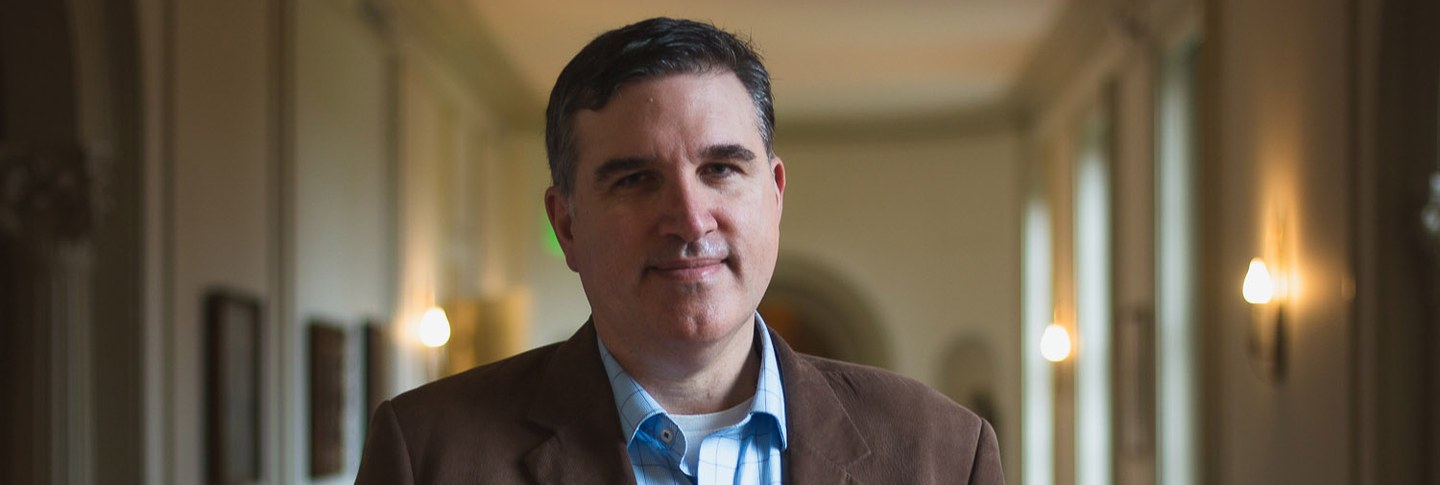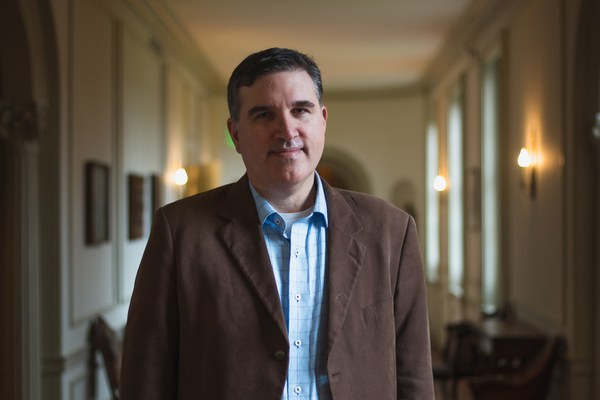Dimiter Angelov, Dumbarton Oaks Professor of Byzantine History at Harvard University and a senior fellow, was a spring 2020 visiting scholar in Byzantine Studies. He studies the specific ways Eustathios, a leading teacher of rhetoric in Constantinople, repurposed ancient knowledge; and is translating gems of Byzantine philosophy and literature by the emperor Theodore II Laskaris.
Q&A with Dimiter Angelov
What have you worked on while in residence?
Most of my time during the spring term was spent on two projects. Lunchtime conversations in the refectory and other intellectual exchanges with scholars in Byzantine studies were always enriching and inspirational.
My first project focuses on a twelfth-century work of world geography and ethnography by Eustathios, a leading teacher of rhetoric at the imperially funded school in Constantinople and a famous Homeric scholar. This remarkable work contains hundreds of excerpts from classical and, in rarer cases, Byzantine texts. Classicists have long mined it for precious and sometimes unique quotations from ancient authors, yet Byzantinists have rarely approached it as a cultural and educational product of its day and age. Composed as a commentary on the Description of the Known World by the Alexandrian author Dionysius Periegetes (2nd century) and based on Eustathios’s extensive lecture notes (as well as his amazing library), the work is best understood as a wide-ranging geographical anthology.
How have you studied this work by Eustathios?
As part of my study I have reconstructed the elite audience of Eustathios (his addressee and student, John Doukas Kamateros, belonged to a powerful dynasty of twelfth-century civil officials) and uncovered specific ways Eustathios repurposed ancient knowledge to cater to the educational needs and epistemic mindsets of his contemporaries. For example, Eustathios was fascinated with the unity of the old Greco-Roman world. He substantially expanded the description of Italy and Greece, and favored the foundation myths of Rome as a product of Greek migration and settlement. The well-connected Constantinopolitan teacher was interested in trade, particularly in fair trade; interestingly, the Chinese silk merchants were, for him, the paragon of fair trade. Several decades before Venetian ships brought to Constantinople the conquering and predatory armies of the Fourth Crusade, Eustathios was intrigued by the ancient history and ethnography of Venice, which had emerged as Byzantium’s main commercial rival in the late twelfth century.
What is your other project, and what gaps does it fill for Byzantine studies?
The other project is my continued work on the English translation of eight fascinating texts by the emperor and philosopher Theodore II Laskaris (1221/22–1258). These translations are intended as a sequel to the historical biography of Laskaris that I published in 2019 with Cambridge University Press. They contain some real gems of Byzantine philosophy and literature, which will appear in English for the first time and should be of interest to a broad academic audience of historians, classicists, and philosophers.
The eight works include philosophical treatises, musings on royal duties, an oration provoked by exchanges with papal ambassadors, polemics, and a long satire with autobiographical elements. Among the translated texts is the only systematization of a theory of friendship in Byzantium. Written with literary flair and addressed to Laskaris’s childhood companion and future chief minister, this intriguing work can be described as a sociological treatise on patronage and politics. I have analyzed it elsewhere and am happy to see the English translation through.
Another translated work—Laskaris’s memorial discourse on the Western Roman emperor Frederick II Hohenstaufen—sheds unusual light on royal solidarity across the Mediterranean during the thirteenth century. Even though the Western emperors were traditional rivals of the Byzantines because of the centuries-old dispute over the Roman imperial title, Laskaris uses the occasion of Frederick’s sudden death in December 1250 to voice musing on the duties and difficulties of kingship. My planned volume of translations also includes one of the most eloquent and far-reaching articulations of Hellenism in Byzantium: a speech Laskaris composed on the occasion of a debate with Dominican friars held in Thessaloniki in the autumn of 1256 regarding the union of the churches and various politics matters. Based on a series of arguments, partly derived from ancient philosophy, partly newly constructed, Laskaris presented a passionate and assertive vision of Hellenism and Hellenic identity that is unparalleled in the Byzantine Middle Ages.
Julia Ostmann is postgraduate writing and reporting fellow at Dumbarton Oaks. Photo by Elizabeth Muñoz Huber, postgraduate digital media fellow.

